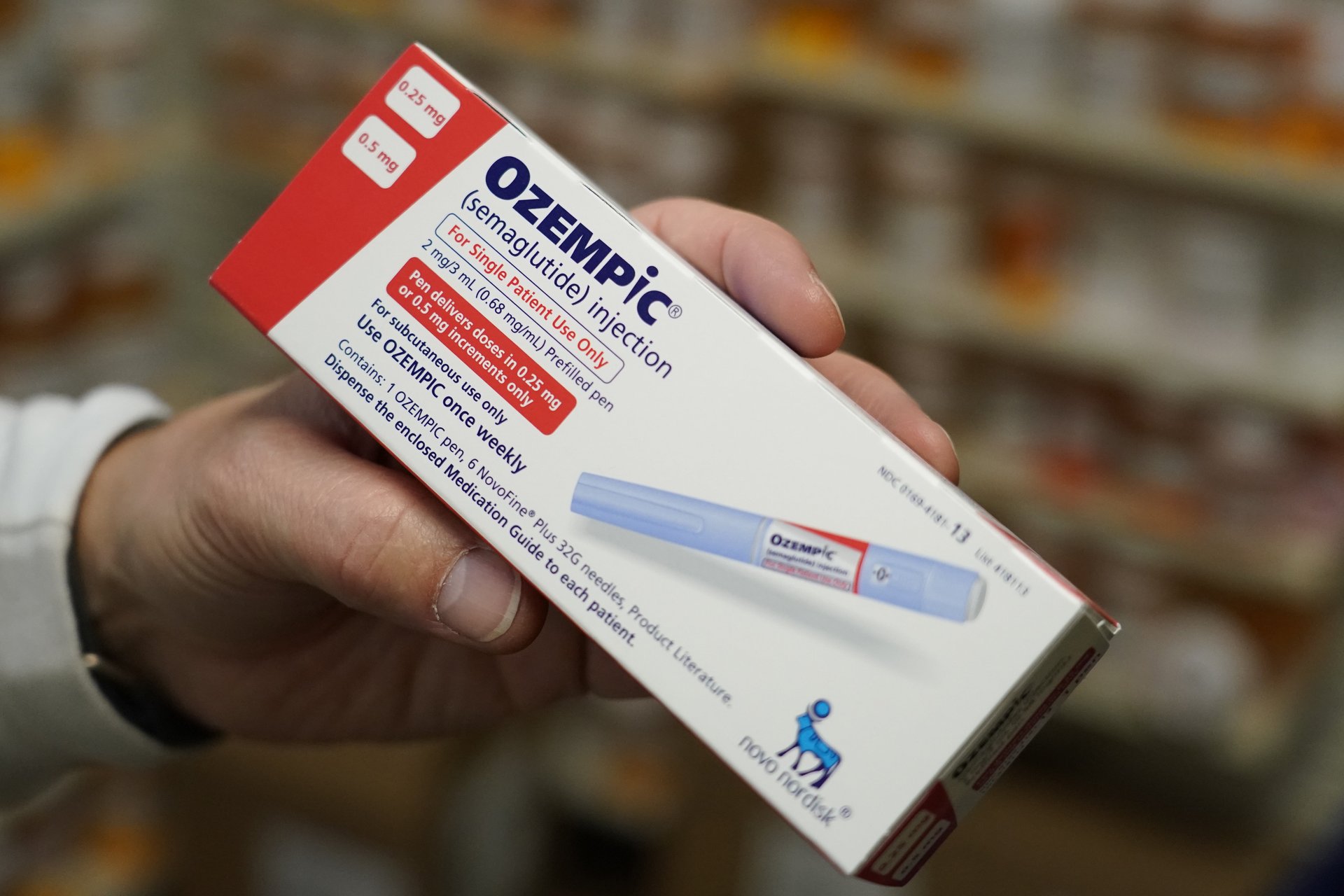Ozempic could be linked to a common cause of sudden blindness, study finds
Researchers found a link between Ozempic and nonarteritic anterior ischemic optic neuropathy (NAION)

Suggested Reading
Novo Nordisk’s (NVO) blockbuster diabetes drug Ozempic may have a potential link with an eye condition that causes vision loss, according to a non-peer reviewed study published Thursday on medRxiv.
Related Content
Diabetes patients using Ozempic were found to be over twice as likely to develop a rare eye condition known as NAION compared to those taking other diabetes medications, according to researchers who analyzed years of patient data from Denmark and Norway.
Still, the study determined that the overall incidence of the condition was exceptionally low, with just 1.4 additional cases per 10,000 patient-years of observation — calculated as the number of patients multiplied by the years they were monitored — among those taking Ozempic compared to users of other diabetes medications.
If the risk remains consistent over time, a type 2 diabetes patient taking Ozempic for 20 years would face a 0.3% to 0.5% likelihood of developing NAION, according to the study.
The findings for Wegovy — the company’s weight-loss drug that shares the same active ingredient as Ozempic — were inconclusive due to an insufficient number of patients in the analysis. Wegovy didn’t launch in Denmark until 2022 and in Norway until 2023.
NAION is a condition in which blood flow in the optic nerve — a bundle of nerve fibers that connects the back of the eye to the brain — is reduced leading to sudden and irreversible blindness. The condition is the most common optic nerve disease in the United States, affecting up to 10 out of 100,000 older Americans every year, according to the American Academy of Ophthalmology.
This study follows another one from earlier this year that also found a link between semaglutide, the active ingredient in Ozempic, and NAION.
“Given the well-established effects of semaglutide in managing both diabetes and obesity, it is crucial to weigh the potential risk of NAION against the substantial therapeutic benefits of semaglutide,” the researchers wrote.
“Patient safety is a top priority for Novo Nordisk, and we take all reports about adverse events from use of our medicines very seriously,” a Novo Nordisk spokesperson told Quartz in an emailed statement.
The company said it had reviewed all available data on NAION in relation to its semaglutide products, including scientific literature, non-clinical studies, clinical trial results, post-marketing reports, and the Food and Drug Administration’s (FDA) Adverse Event Reporting System (FAERS). This review found no evidence of a causal link between semaglutide and NAION.
The company also clarified that NAION is not listed as a known side effect for its branded semaglutide products including Ozempic and Wegovy, according to their official labels. Additionally, after a review of this new study, Novo Nordisk reached the opinion that “that the benefit-risk profile of semaglutide remains unchanged.”
